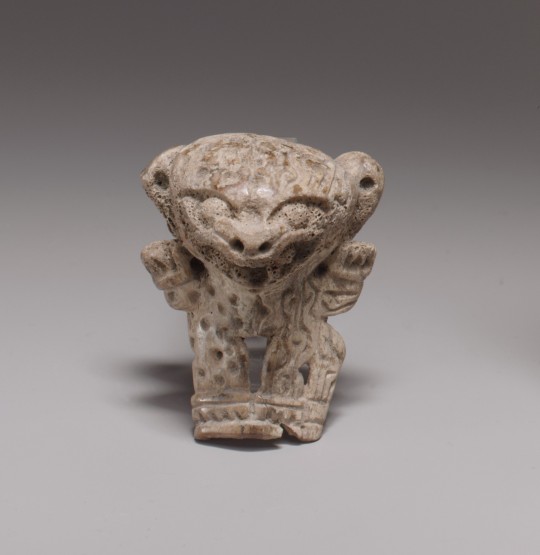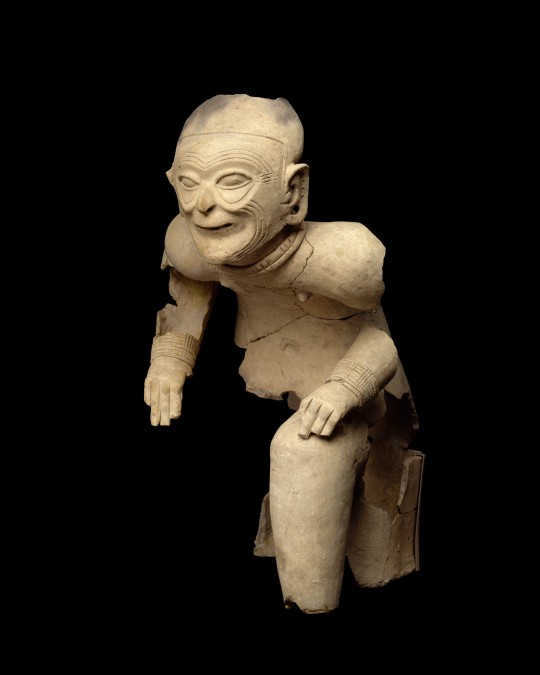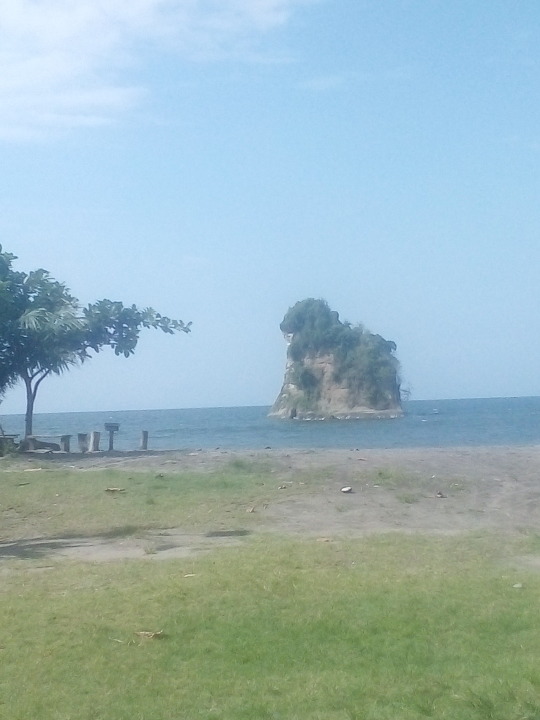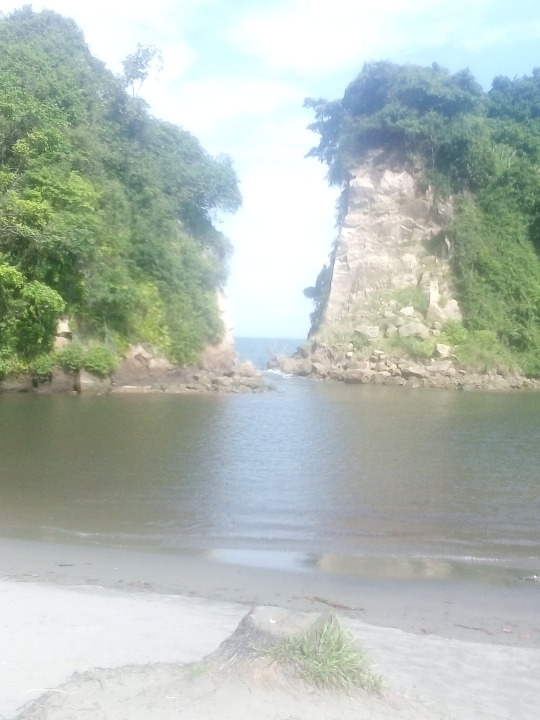#tumaco
Explore tagged Tumblr posts
Photo
Tell me what you want ! What you really really want

Tumaco #tumaco #tumaconariño #igerscolombia #enmicolombia #thisisincolombia https://www.instagram.com/p/CeuPD6lvnW8/?igshid=NGJjMDIxMWI=
2 notes
·
View notes
Text
For #FishFriday + #FintasticFriday : Giving #Sharks #Rays #Skates & #Sawfish a Voice, a celebration of all #Elasmobranchs:

Shark Tolita-Tumaco (Columbia/Ecador), 1st-5th c. CE Ceramic, L. 8 1/2 in. (21.6 cm) The Metropolitan Museum of Art, New York 1980.34.24
#animals in art#animal holiday#shark#Fish Fiday#Fintastic Friday#Tolita-Tumaco#Indigenous art#South American art#ancient art#animal effigy#ceramics#sculpture#Metropolitan Museum of Art New York#fish
10 notes
·
View notes
Text






Deuxième étape de mon périple dans l'Ouest pour retrouver des ami(e)s lointain(e)s , Brigitte et Sylviane à La Rochelle.
Le Muséum d'Histoire Naturelle (les infos hélas ne sont pas toujours claires…). Suite et fin !
masque nookta de chaman - île de Vancouver, Canada
tenues de cérémonie warime - Orénoque, Vénézuela
bouteille - culture de Tumaco-La Tolita, Equateur
figurines - Equateur
idem
jarre - Oaxaca, Mexique
#la rochelle#muséum#muséum d'histoire naturelle#ethnologie#masque#canada#amérindien#nookta#chaman#warime#orénoque#vénézuela#venezuela#tumaco-la tolita#équateur#oaxaca#homard
8 notes
·
View notes
Text

Spotted Feline
Tolita-Tumaco
1st century BCE–4th century CE
This small anthropomorphized feline is carved of bone. The animal is standing upright in a human position, with front legs further raised like human arms. A huge head, as tall as the rest of the figure, has bared fangs, flared nostrils, and wide eyes that exude aggression and strength. Two different patterns elaborate the body. On the right are the dots of a spotted feline, while on the left is an unusual banded design. The meaning of this difference is unclear. Utilitarian objects such as needles, awls, spatulas, and fishhooks were also made of bone.
source
7 notes
·
View notes
Text

Mask. Tolita-Tumaco. 1st century BCE–4th century CE.
83 notes
·
View notes
Note
El anon de la marcha de colombia, la verdad estoy re perdido con las demás, pero les dejo un artículo que habla de la universidad nacional y un mini vent. Igual la idea es que se redacte un documento resumiendo bien la situación en el país, apenas pueda lo roto por acá.
https://revistaraya.com/ataques-a-la-prensa-y-empresas-paralelas-los-legados-de-dolly-montoya-en-la-nacho.html
Ahorita en la nacional tenemos dos problemas densos, 1. En 2019 la embajada de países bajos donó 12 millones de euros para la construcción de la sede de presencia nacional de Tumaco, Nariño.
No se ha hecho nada con esa plata (la sede actual son bunkers, donde meten clases de 30-40 personas a 40°) y la embajada dio plazo hasta el 19 de mayo para que se inicien contrataciones y obras o nos retiran el apoyo, hasta el día de hoy no se ha hecho ni mierda.
(destaco el comentario de un compa de Tumaco, la universidad es la única forma que tenemos de salir adelante, puedo contarles cuántos de mis amigos terminaron en la guerrilla, y no les cuento cuántos ya están muertos)
2. Se hizo una encuesta para la elección del nuevo rector, participan estudiantes, profesores, trabajadores y egresados, en esta ganó con el (creo) 32% Leopoldo Munera. Que pasa con esto? La encuesta no es vinculante, es una sugerencia que se da al Consejo Superior Universitario, donde 8 personas eligen al rector. Ahora, se armó un lío que no voy a detallar por medio a equivocarme, pero lo importante es que se inventaron un mecanismo de votación que asegura que no gane el más votado, y desde el ministerio de educación se pidió que se investigara que pasó, porque designaron al señor Ismael Peña, que quedó en 3er lugar con el 7% de apoyo.
Este señor se procesiona este jueves, EN LA SEDE TUMACO, el asqueroso hipócrita
Que alguien nos libere de la gente poderosa y corrupta que quiere mantener al pueblo ignorante.
33 notes
·
View notes
Text

B R O W N I E S *70% Tumaco Dark chocolate.
7 notes
·
View notes
Text

Pieza de alfarería precolombina.
Tumaco, Colombia.
Museo del Oro, Bogotá, Colombia.
3 notes
·
View notes
Text
Brazil Expands Amazon Route towards the Pacific
The goal is to boost the trade flow of countries in the region and also to open channels to more quickly transport Brazilian and South American products via the Pacific

Brazil has revised the routes of the South American integration plan and expanded the route made in the Amazon region with the support of Peru, Ecuador, and Colombia.
Route 2, which will now be called the Amazon route, will now end at four ports in the Pacific Ocean: Tumaco (Colombia), Manta (Ecuador), and Paita and Chancay (Peru).
The original route connected Manaus (Amazonas) to Manta. The expanded route is one of the main bets of the Lula administration to expand Brazil's integration with Asia.
Continue reading.
#brazil#brazilian politics#politics#peru#ecuardor#colombia#economy#mod nise da silveira#image description in alt
3 notes
·
View notes
Text
At some point I went through and looked at every Trader Joe's chocolate for a reason I cant remember, and they all had unsafe levels in either one or both (lead and cadmium). I believe the most cadmium in one was 26 µg (safe levels of cadmium is max 4.1 µg/day). So uh stay away from Trader Joe's chocolate.
For those interested, I just checked back and the one with 26 µg was: Trader Joe's The Dark Chocolate Lover's Chocolate Bar 85% Cacao (Tumaco)

126K notes
·
View notes
Text
Tumaco-Tolita gold figurine: A 2,000-year-old statue with a 'fancy nose ornament' from a vanished South American culture
Live Science By Kristina Killgrove March 24, 2025 Name: Tumaco-Tolita standing figure What it is: A gold sculpture of a person Where it is from: Near the Colombia-Ecuador border When it was made: A.D. 1 to 300 Related: Mechanical Dog: A ‘good boy’ from ancient Egypt that has a red tongue and ‘barks’ What it tells us about the past: Two millennia ago, a group of people who were highly skilled in…
0 notes
Text
#TwoForTuesday:

Red and White Fish Effigy & Black Fish Effigy Tumaco/La Tolita culture, Colombia, South America, 300 BCE-300 CE Ceramic; 3 1/2 x 10 3/4 x 1/4 in. (8.9 x 27.3 x 0.6 cm), 3 1/2 x 11 x 1/4 in. (8.9 x 28 x 0.6 cm) Michael C. Carlos Museum 1990.011.042,3
#animals in art#ancient art#Indigenous art#South American art#Michael C Carlos Museum#pair#Two for Tuesday#ceramics#effigy#fish
18 notes
·
View notes
Text
Top 10 things to do near Bogota Colombia
Bogota, the capital and largest city of Colombia, showcases its street art, bustling markets, and astonishing museums. It is an amalgamation of rich cultures, modern urban life, and rich history. Bogota is situated in the center of Colombia, at an altitude of 2,640 meters from sea level. While roaming the streets of Bogota, one can see a great influence of Spanish culture. The cascades of mountains captivate the eyes of tourists. Bogota is the cultural hub for the visual arts, literature, and theatre. Additionally, the place is full of attractions and adventures; top 10 plans near bogota, Colombia, are given in this post.
Things to do near Bogota
-Visit Gold Museum -Mount Monserrate -Botero Museum -Museos del Banco de la Republica -National Museums of Colombia -Bogota Bike tour -Explore Xcape -Hike to La Chorrera and Chiflon -Bogota Zipaqura Salt Cathedral tour -Unique coffee farm experience -Visit Gold Museum
As the name appears, the museum consists of goldwork and other stuff that is made from stone, ceramic, and bones. Gold Museum, or Museo del Oro, was constructed in the year 1939, located in front of Parque de Santander, Bogota. In the museum, over 55,000 pieces of goldwork are available. The gold museum is recognized as the world's largest collection of pre-Hispanic goldwork. Wheelchair assistance is also accessible for the people who are needy. The museum has exhibition rooms, restaurants, cafes, and an auditorium.
Mount Monserrate
Mount Monserrate is a pilgrimage destination for the Catholics. Apart from this, the top panoramic view from Mount Monserrate is to die for. Lush green forests surround the mountain; breathtaking views help the tourists connect with spirituality. To reach the top pf the mountain, you can hop on the cable car or funicular as per your preference. Moreover, tourists who want to hike the mountain to go to the top can go on foot. On the top of the mountain, a statue of El Señor Caído is established, which is a prime attraction for tourists.
Botero Museum
Botero Museum is located in La Candelaria, Bogota, and has a large collection of art, including works by artists like Picasso, Fernando Botero, and other art masters. Astonishing paintings, majestic sculptures, and drawings of famous artists. More than 500,00 people come to the museum annually to cherish the paintings of Comobian artist Fernando Botero and others. Here, you can get a closer view of the evolution of modern paintings and sculptures. The museums have programs like education, workshops, and guided tours. While taking photographs, flash is strictly prohibited.
Museos del Banco de la Republica
The museum was established in 1939, preserving the belongings of the Calima, Tayrona, Sinu, Quimbaya, Muisca, Tolima, Malagana, and Tumaco cultures. In the museum, 20,000 stones, textiles, ceramic objects, and others have been protected carefully. Around 34,000 pieces of Gold objects are also present in the Museos del Banco de la Republica. Serene gardens, colonial buildings, and classic sculptures are the main reasons tourists draw attention to Museos del Banco de la Republica.
National Museums of Colombia
The National Museum of Colombia is the best place to get a closer view of Colombia's cultural heritage, history, and art. It is the pride of Bogota, founded in 1823 by President Simón Bolívar. The National Museum of Colombia is the oldest and largest museum in Colombia. The museum has different dedicated sections: paintings, engravings, drawings, and other artifacts. These elements depict the different national history periods. Try to reach the National Museum of Colombia early so that you can explore the museum in a crowd.
Bogota Bike tour
For enthusiastic, bike-friendly travelers, Bogota Bike tours can be a great thing to see the city on their own. The best way to explore the city is to book a bike tour guide that will help you get to know the actual Bogota. The local markets, crowded streets, and coffee farms are a few attractions that will come in the way of a bike tour of Bogota. There are several groups that allow the tourist of age up to 90 years to hop on the bike. The duration depends on the type of bike tour program you have booked. The tour organizers opt for safety measures as well.
Explore Xcape
Ditch the traditional way of entertainment and try something interesting by going to Xcape. This is basically an escape room that is designed to entertain the tourists coming to have fun with their family or friends. The place is kid-friendly, offering numerous activities and games to keep them engaged. Tutankhamun and puzzle games are highly recommended for visitors who are planning to explore Xcape.
Hike to La Chorrera and Chiflon
La Chorrera and Chiflon are the two main waterfalls that can be considered great escapes for hikers. The picturesque views from these two places are worth the hard work required to reach the top of the waterfall. The place is a picture-perfect spot that will blow the minds of your Instagram followers. The hiking might be a little challenging for first-timers, but the pristine view makes it a little bit easier.
Bogota Zipaqura Salt Cathedral tour
This tour includes the exploration of the underground church and salt mines in Bogota. The main dome and three naves of the cathedral and the process of salt mining give a unique exposure to the travelers. This 6-7 hours of the Bogota Zipaqura Salt Cathedral tour will be an astonishing experience for the visitors.
Unique coffee farm experience in Bogota
The coffee harvesting process, traditional coffee farming, and handpicking of coffee beans from the farm are the crucial steps that you can get hands-on in the unique coffee farm tour. You can understand the daily life of a farmer at the coffee farm along with interacting with the farmers directly.
Frequently Asked Questions
What places to visit outside Bogota?
Outside Bogota, you can travel to Lake Guatavita, Zipaquira, and La Chorrera Waterfall. You can take a tour of the Chicaque Natural Park, Botero Museum, and oldest town La Candelaria.
Where to travel alone near Bogota?
Cano Cristales, La Calera, Villa de Leyva, Zipaquira, and Bucaramanga are some of the places that are suitable for travelers who are willing to travel alone near Bogota.
Where to go hiking in Cundinamarca?
Cundinamarca is heaven for the hikers. To hike in Cundinamarca Reserva Natural El Zoque, Parque Metropolitano Simón Bolívar, Parque Aventura la Chorrera, Parque Natural Chicaque, and Reserva Natural El Zoque are the best places.
What is the best city in Cundinamarca to visit?
The best city in Cundinamarca to visit is Zipaquirá. The place is stunning, offering Indigenous history, hot springs, and natural beauty to the travelers coming to Cundinamarca.
What to do in Bogota on a budget?
Visiting parks, museums, local markets, a tour of historic towns of Bogota, and a graffiti tour of the city can be considered by travelers who are on a budget traveling in Bogota.
0 notes
Text

Seated elder
Tolita-Tumaco
200 BCE–400 CE
This sculpture is one of the most spectacular examples of ceramic figures created by Tolita-Tumaco artists. It depicts an elderly person, recognizable by facial wrinkles, baggy skin beneath the eyes, the few remaining teeth, and chin stubble. Its flattened head reveals cranial modification during childhood, a cultural practice that could have signaled ethnic identity or rank in antiquity. The gender of this effigy is not clear. Marked nipples, as in this figure’s chest, were more common in female than male representations in Tolita-Tumaco and Jama-Coaque ceramic traditions of coastal Ecuador. This statue, however, lacks the long skirts that are typically seen in female images. Tolita-Tumaco potters are known for their realistic renderings of humans, such as the examples in the collections of Casa de Alabado in Quito and Museo Chileno de Arte Precolombino in Santiago. Some of their figures are depicted leaning forward, adopting an animated pose, with flexed legs, arched torsos, and faces staring ahead. Elders were a popular theme, and several examples can be found in the collections of the Museo del Banco Central de Ecuador in Quito and in Guayaquil. A common interpretation is that these elder figures were representations of religious specialists, or ancient "shamans" who had the responsibility to mediate relations between people and other beings in nature. The marked spine in the back may be revealing of more than a very lean body, as it bears a resemblance to iguanas. With dry and wrinkled skin, the comparison of Tolita-Tumaco revered elders with those reptiles could have been a way to evoke the human-animal connection that is a key element in shamanistic rituals.
source
0 notes
Text
PARODIANDO A ARACATACA
Siempre que mencionan a Gabriel García Márquez y su incunable Cien Años de Soledad pienso, y lo he dicho una y otra vez, que qué tal que ese monstruo hubiese nacido en Tumaco. Hoy que cumpliría 98 ruedas el vate, voy a tomarme la licencia de referirme, con el mayor de los respetos, a él, a su obra y a su pueblo. Por allá en algún año de los vibrantes ochenta, luego en todo caso de nuestro…
0 notes


